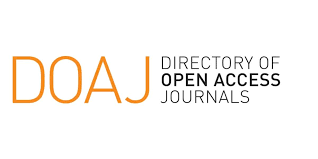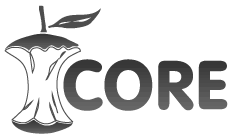Federal scholarships in the welfare of Centros de Bachillerato Tecnológicos Agropecuarios students in Tlaxcala, Mexico
DOI:
https://doi.org/10.36881/ma.v1i2.720Keywords:
scholarships, federal, well-being, high school, agricultureAbstract
Federal scholarships seek to support family spending and the well-being of people through the satisfaction of their basic needs, guaranteeing the education and school permanence of young students. Therefore, the present work has as objective: To know the use of the scholarships granted by the government and the changes identified in the school welfare, personal and family of the students of the CBTas 134 and 162 of the upper secondary agricultural education of Tlaxcala state, México. The study was carried out through qualitative research, with an in-depth structured interview, which was recorded to collect the data with the greatest possible fidelity. As a result, it was found that scholarships help in a minimal way to the economic problems of the home, school, and personal issues, due to the conditions of poverty that students present. It is concluded that scholarships are an economic support that does not help to have better school performance and social well-being.
Downloads
References
Ancheta, A., y Lázaro, L. (2013). El Derecho a La Educación y Atención de La Primera Infancia En América Latina. Educación XXI, 16(1),105-121. http://www.redalyc.org/articulo.oa?id=70625886006.
Araujo, M. C., Martínez, M. A., Martínez, S., Pérez, M., & Sánchez, M. A. (2018). ¿Se mejora la escolaridad con becas de mayor monto? La evidencia de las localidades urbanas de México. Banco Interamericano de Desarrollo. https://publications.iadb.org/publications/spanish/viewer/%C2%BFSe-mejora-la-escolaridad-con-becas-de-mayor-monto-La-evidencia-de-las-localidades-urbanas-de-M%C3%A9xico.pdf
Ávalos, M. L., Ramírez, J. C., Oropeza, R., Palos, M. U., Miranda, R. B. y Palomar, G. M. (2018). Bienestar escolar y rendimiento académico en estudiantes de bachillerato. Revista Internacional PEI: Por la Psicología y Educación Integral, 6(14), 7-24. https://www.researchgate.net/publication/322951042_Bienestar_escolar_y_rendimiento_academico_en_estudiantes_de_bachillerato
Ayuso, L. (2010). Juventud y familia a comienzos del siglo XXI. En P. González (Coord.), Jóvenes españoles (pp. 115-174). Ediciones SM.
Bejarano, A., Alba, L., & Pineda, N. (2021). Pautas de crianza en el sector rural. Revista Estudios Psicológicos, 1(2), 66-73. http://www.estudiospsicologicos.com/index.php/rep/article/view/9/9
Beltrán, J., y Callejas, D. (2015). Efecto de la corrección de desórdenes de refracción ocular sobre el rendimiento escolar: una revisión de la literatura. Boletín del Instituto Nacional de Salud, 21, (10-12). https://repositorio.ins.gob.pe/bitstream/handle/20.500.14196/901/bol-dic-181-186.pdf?sequence=1&isAllowed=y
Blanco, A., & Díaz, D. (2005). El bienestar social: su concepto y medición. Psicothema, 17(4), 582-589. http://www.redalyc.org/articulo.oa?id=72717407.
Castillo M. S. E. (2013). La génesis del programa de hogares comunitarios del Instituto Colombiano de Bienestar Familiar (Tesis doctoral, Universidad de Caldas, Manizales) https://ridum.umanizales.edu.co/jspui/bitstream/20.500.12746/702/1/Castillo_Matamoros_Sara_Eloisa_2009.pdf.
Cecchini S., y Madariaga, A. (2011). Programa de transferencia condicionada: balance de la experiencia reciente en América Latina y el Caribe. CEPAL.
Centro de Aprendizaje y Conocimiento (2020). Apoyo y bienestar familiar, https://eclkc.ohs.acf.hhs.gov/es/browse/topic/family-support-well-being
CEPAL (2011). Panorama social de América Latina. https://repositorio.cepal.org/bitstream/handle/11362/1236/S2011800_es.pdf?sequence=4&isAllowed=yde
Coneval (2018). El progresa, oportunidades y prospera a 20 años de su creación. Coneval.
Diario Oficial de la Federación (2019). Ciudad de México, 31 de mayo de 2019. https://www.dof.gob.mx/nota_detalle.php?codigo=5561618&fecha=31/05/2019.
Duff, J., Rubenstein, C., & Prilleltensky, I. (2016). Wellness and fairness: Two core values for humanistic psychology. Humanistic Psychologist, 44(2), 127-141. http://dx.doi.org/10.1037/hum0000020.
Gobierno de México (2019). México construyendo el futuro. www.gob.mx/jovenesconstruyendoelfuturo
Gómez, G. R., Flores, J. G., & Jiménez, E. G. (1996). Metodología de la investigación cualitativa. Ediciones Aljibe.
Hernández S. R, (2006). Metodología de la investigación. McGraw-Hill.
Jaramillo, M. (2015). Mediciones de bienestar subjetivo y objetivo: ¿Complemento o sustituto? Acta Sociológica,70, 49- 71. https://www.sciencedirect.com/science/article/pii/S0186602817300038
Jiménez, R. (2007). Aproximación a la teoría del Bienestar. Universidad Tecnológica de Pereira. https://dialnet.unirioja.es/descarga/articulo/4787482.pdf.
Keyes, C. (1998). Social well-being. Social Psychology Quarterly, 61, 121-140. https://www.jstor.org/stable/2787065
Laca, F. y Navarro, F. (2013). La percepción de la violencia en México en relación con el bienestar subjetivo y social. Anuario de Psicología, 43(3), pp. 323-334. https://www.redalyc.org/pdf/970/97030658004.pdf
Landero, C. (2022). Sistema de becas para garantizar con equidad el derecho humano a la educación. Lus Comitiãlis, 5(9), 147-167. https://iuscomitialis.uaemex.mx/article/view/18262/14018
Martínez M. E y Martínez M. R. (2013) Análisis del efecto de las becas económicas en el rendimiento escolar en una institución de nivel medio superior. Investigación y Ciencia, 21(59), 41-47. https://www.redalyc.org/articulo.oa?id=67430113005
Martínez, O. A. (2012). Efectos de las becas educativas del programa Oportunidades sobre la asistencia escolar. El caso de la zona urbana del noreste de México. Revista Desarrollo y Sociedad, 69(41), 99-131. https://www.redalyc.org/articulo.oa?id=169124301004
Mediavilla, M. (2014). ¿Son efectivas las becas en España? Una evaluación de impacto para el nivel secundario post-obligatorio. Revista Iberoamericana de Evaluación Educativa, 7(1),121-139. https://roderic.uv.es/bitstream/handle/10550/62984/094915.pdf?sequence=1&isAllowed=y
Mejía, J. J. (2012). Modelos de implementación de las políticas públicas en Colombia y su impacto en el bienestar social. Analecta política, 2(3), 1-15; 141-164. file:///C:/Users/ADELINA/Downloads/Dialnet-ModelosDeImplementacionDeLasPoliticasPublicasEnCol-5206421.pdf
Morales, J. (1994). Sociedad y bienestar: el concepto de bienestar. Anuario Filosófico, 27, 603-611. https://hdl.handle.net/10171/3312.
OMS Informe sobre la salud en el mundo (2001). La Salud Mental: Nuevos Conocimientos, Nuevas Esperanzas, OMS. https://scielo.conicyt.cl/scielo.php?script=sci_nlinks&ref=10167292&pid=S0718-2376200700020001200044&lng=es.
PNUD (2014). Informe sobre desarrollo humano 2014, sostener el progreso humano: reducir vulnerabilidades y construir resiliencia. Estados Unidos, PNUD https://www.cac.int/sites/default/files/HDR-2014-Spanish.pdf
Posada, C. M. G., Aristizábal, I. M., Aristizábal, C. E. L., Cuervo, G. M., Tobón, Á. U., & Franco, N. E. M. (2011). El ideal estético en jóvenes de Medellín: percepciones desde algunas prácticas de estética corporal. Educación Física y deporte, 30(2), 597-604. https://revistas.udea.edu.co/index.php/educacionfisicaydeporte/article/view/11318.
Ramírez, A., Malo, A., Martínez, P., Montánchez, ML., Toracchi, E., y González, F. (2020) Origen, evolución e investigaciones sobre la Calidad de Vida: Revisión Sistemática. Archivos Venezolanos de Farmacología y Terapéutica, 39(8), 954-959. https://www.redalyc.org/journal/559/55969796006/55969796006.pdf
Reyes, B., Franklin S., Oslund R. (2014). Teoría del bienestar y el óptimo de Pareto como problemas microeconómicos. La Calera. https://repositorio.una.edu.ni/3301/.
Rozin, P. (2005). The meaning of food in our lives: A cross-cultural perspective on eating and well-being. Journal of Nutrition Education and Behaviour, 37, 107-112. https://www.jneb.org/article/S1499-4046(06)60209-1/pdf
Ruiz S., J. y Cruz R., M. (2017). Elementos para una crítica de las tendencias recientes de medición del desarrollo y la calidad de vida. Región y Sociedad, 29(70), 301-321. https://www.scielo.org.mx/scielo.php?script=sci_arttext&pid=S1870-39252017000300301
Ryff, C. D. y Keyes, C. L. M. (1995). “The Structure of Psychological Well-Being” Revisited. Journal of Personality and Social Psychology, 69(4), 719-727. https://doi.org/10.1037/0022-3514.69.4.719
Sánchez, A., Villarespe, V., & Naranjo, A. (2020). Becas Escolares y su impacto en la percepción del promedio escolar: evidencia para la Ciudad de México. Problemas del Desarrollo. Revista Latinoamericana de Economía, 51(201), 111-132. https://www.redalyc.org/articulo.oa?id=11864640005
Uribe, C. (2014). Desarrollo social y bienestar. Universitas humanísticas. XXXI(58), 14-22. https://www.redalyc.org/pdf/791/79105802.pdf
Valdés, M. (1991). Dos aspectos en el concepto de bienestar. Doxa. Cuadernos De Filosofía Del Derecho, (9), 69-89. https://doi.org/10.14198/DOXA1991.9.03
Published
How to Cite
Issue
Section
License

This work is licensed under a Creative Commons Attribution 4.0 International License.
The content of the publications is the responsibility of the authors. The journal allows authors to maintain copyright on published articles and documents. The license used is Commons Attribution-NonCommercial International License. CC BY NC
















